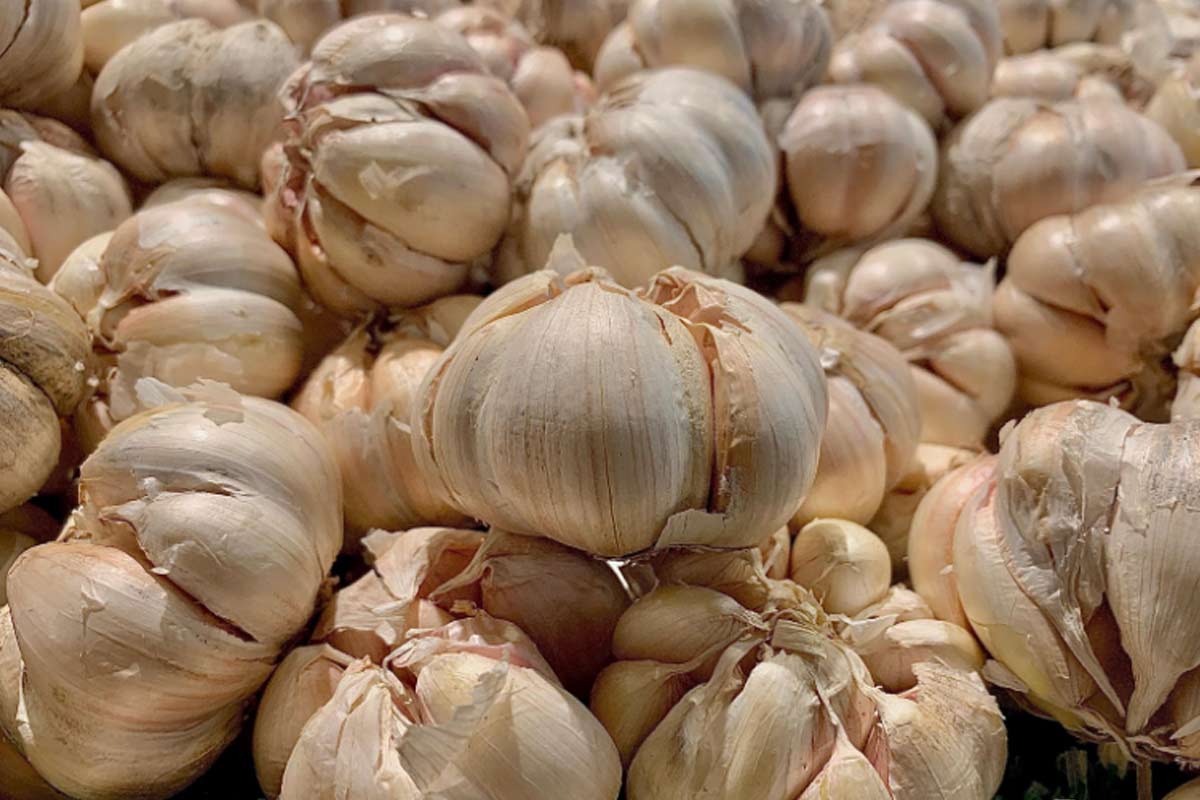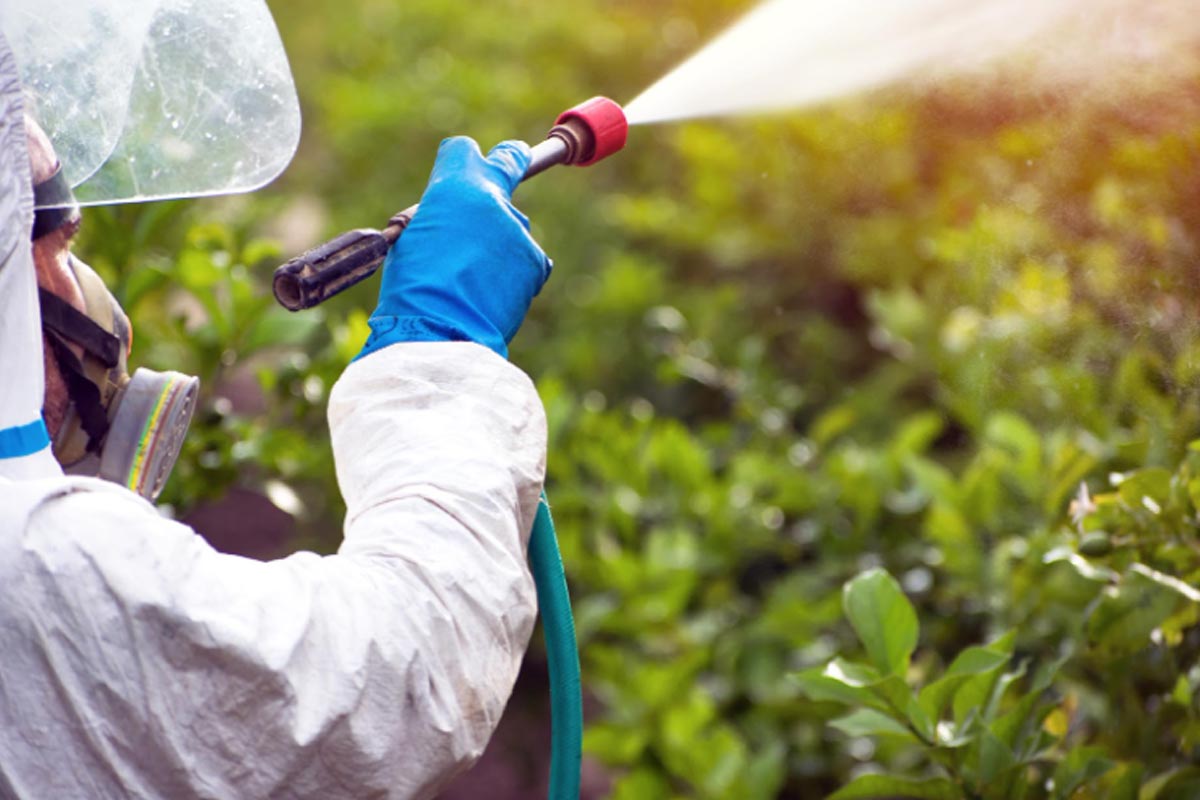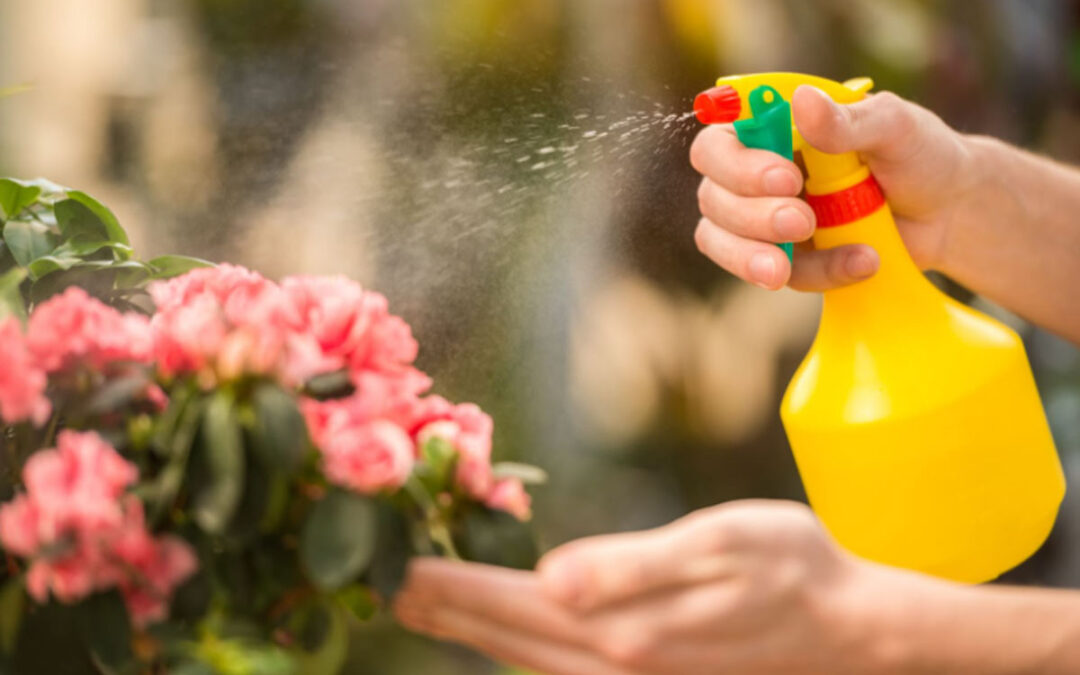Keeping pests at bay in the garden doesn’t always require chemical solutions. As fall approaches, gardens need a gentle approach to ward off insects and small critters preparing for winter.
Creating a natural pest repellent lets you maintain a healthy garden ecosystem while protecting your plants from harm. Here’s a practical guide to creating a few effective, homemade pest repellents using ingredients you likely already have on hand.
1. Essential Oils for Quick Pest Control
Essential oils from various plants provide a natural and effective way to keep pests out of your garden. Oils like peppermint, rosemary, and thyme repel insects, small rodents, and even certain fungi, making them valuable tools for garden protection.
Recipe:
- Ingredients:
- 10 drops of peppermint oil
- 10 drops of rosemary oil
- 10 drops of thyme oil
- 2 cups of water
- 1 tablespoon of mild dish soap (to help the oils adhere to plants)
- Instructions:
- Mix the essential oils, water, and dish soap in a spray bottle.
- Shake well before each use, as oils can separate over time.
- Spray this mixture around your garden, focusing on the soil and the leaves where pests tend to settle.
Essential oils from novel cultivars of catnip and oregano exhibit strong insect-repellent activity against the common bed bug (Patel et al., 2023). Adding these oils to your mixture increases its strength, making it effective against a wider variety of pests.
Peppermint oil deters ants and aphids, rosemary works against cabbage moths and other flying insects, and thyme repels whiteflies. With the added potency of catnip and oregano, this essential oil blend provides reliable protection to keep your garden pest-free throughout the fall.
2. Garlic and Pepper Spray for Insect Deterrence

Some pests avoid the pungent smell of garlic
Garlic and chilli peppers have a pungent odour that deters many common garden pests like beetles, caterpillars, and aphids. This blend is especially effective in the fall, as it not only drives pests away but also has antibacterial properties that keep plants healthy.
Recipe:
- Ingredients:
- 1 bulb of garlic
- 1 tablespoon of chilli powder (or 2 fresh hot peppers)
- 1 tablespoon of vegetable oil
- 2 cups of water
- 1 teaspoon of mild dish soap
- Instructions:
- Crush or finely chop the garlic and peppers. Combine them with water and let the mixture sit overnight to intensify.
- Strain out the solids, then add vegetable oil and dish soap.
- Pour the solution into a spray bottle and shake well before applying.
For best results, spray this repellent on your garden every few days and after it rains, targeting the leaves and stems where pests are active. The pungent garlic and pepper aroma discourages pests from lingering, while the vegetable oil and soap help the mixture stick to plants longer.
3. Neem Oil Solution for Broad-Spectrum Protection
Neem oil is a powerful natural pest repellent that targets insects at various stages of their life cycle. While it’s effective against aphids, whiteflies, and leafhoppers, it’s also known for being gentle on beneficial insects like bees when used correctly.
Recipe:
- Ingredients:
- 1 tablespoon of pure neem oil
- 1 teaspoon of mild liquid soap
- 1 quart of warm water
- Instructions:
- Combine the neem oil, liquid soap, and water in a spray bottle.
- Shake thoroughly to ensure the oil blends evenly.
- Spray directly onto plants, coating leaves, stems, and soil.
Neem oil works by disrupting the feeding and breeding habits of insects, which makes it especially useful in protecting plants through the seasonal transition. Apply every two weeks, or more frequently if pests are prevalent. Avoid spraying neem oil during the hottest part of the day to prevent leaf burn.
4. Companion Planting as a Year-Round Repellent
Companion planting is an age-old method of using certain plants to naturally deter pests. By strategically planting pest-repellent plants in your garden, you create a self-sustaining pest control system that lasts through multiple seasons.
Effective Companion Plants:
- Marigolds: Repel aphids, mosquitoes, and nematodes.
- Basil: Protects against flies, mosquitoes, and thrips.
- Lavender: Keeps moths, fleas, and flies away.
Plant these herbs and flowers near your vegetables and ornamentals to maintain a steady barrier against pests. Companion planting not only discourages insects but also encourages beneficial pollinators and adds biodiversity to your garden.
When to Consider Professional Pest Control

Hire an expert for best result
While DIY pest repellents can be effective, there may be times when garden pests become difficult to manage with natural methods alone. Persistent infestations can lead to stunted plant growth, reduced yields, and even the spread of disease.
In such cases, reaching out to a professional pest control service, such as pest control in Collingwood, might be the best solution.
Professional pest control experts can assess your garden’s specific needs and apply targeted treatments to protect your plants and soil without damaging the environment. Many pest control companies now offer eco-friendly and organic options, which can be a good fit if you want to minimize chemical use.
Protect Your Garden Naturally This Fall
With these natural pest repellents, you can enjoy a healthier, more vibrant garden all season long. However, if garden pests persist despite your efforts, consider reaching out to a professional. For reliable and eco-friendly pest control in Midland, contact Mr. Pest Control at (705) 739-7378. Keep your garden thriving with expert help when you need it most!



